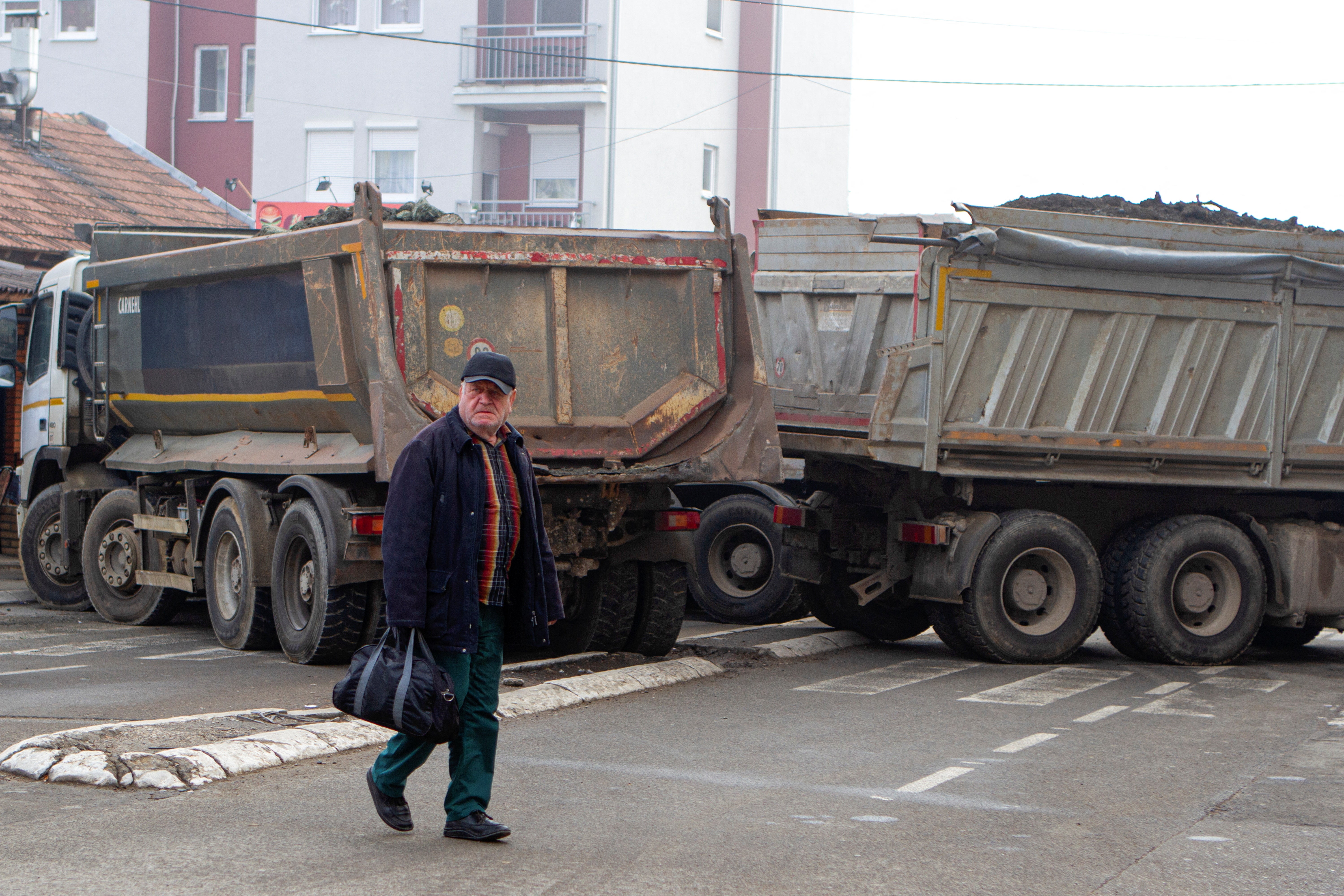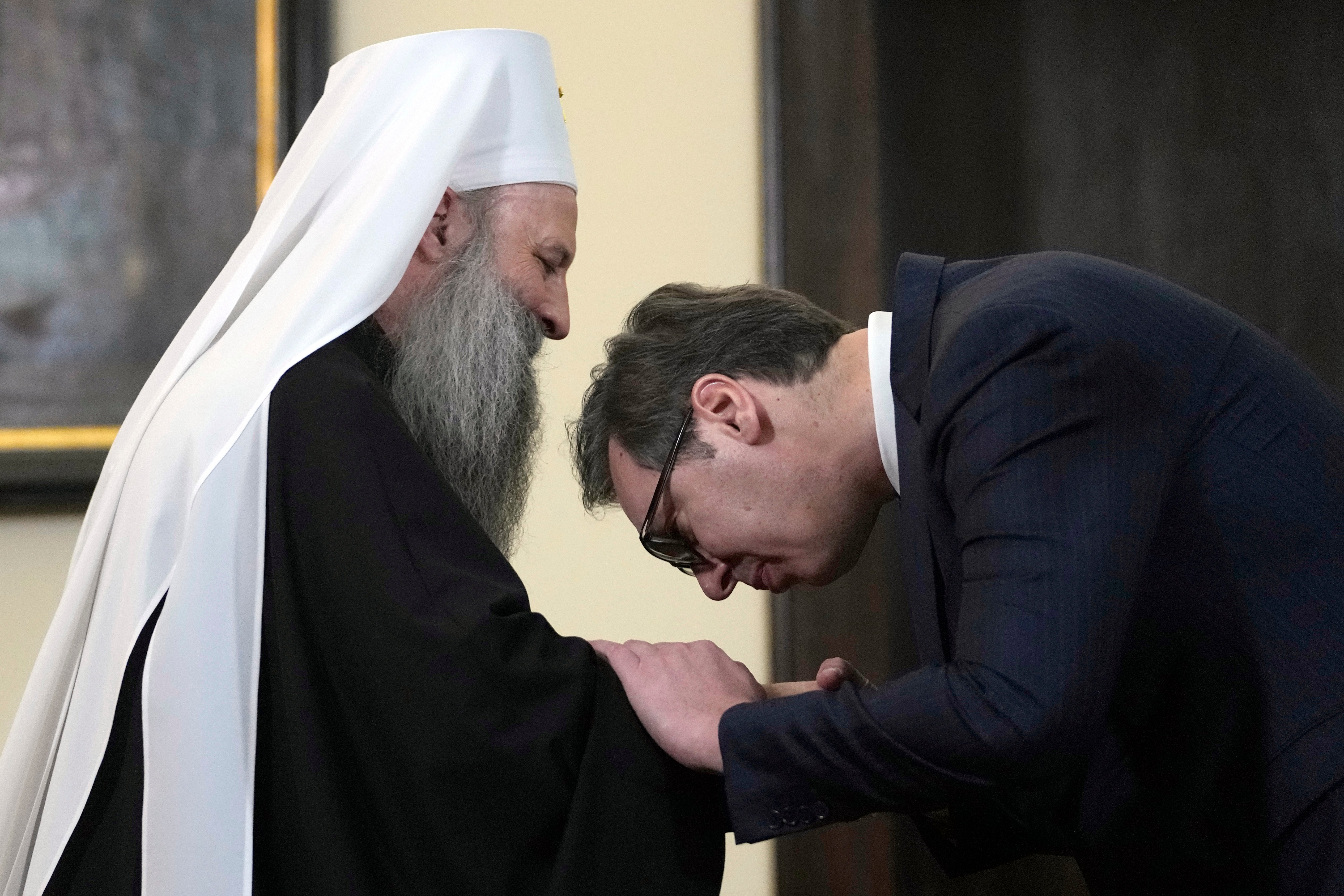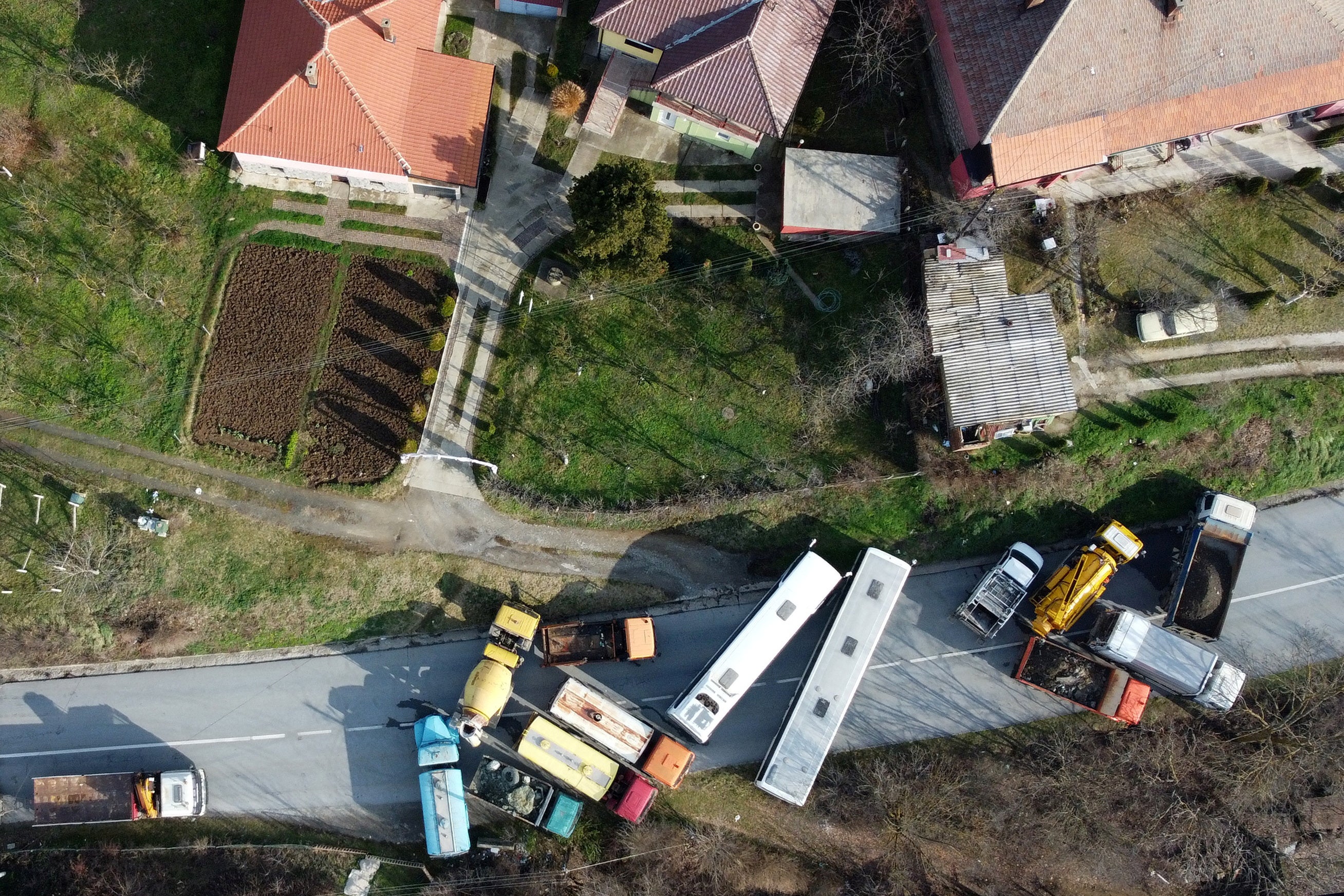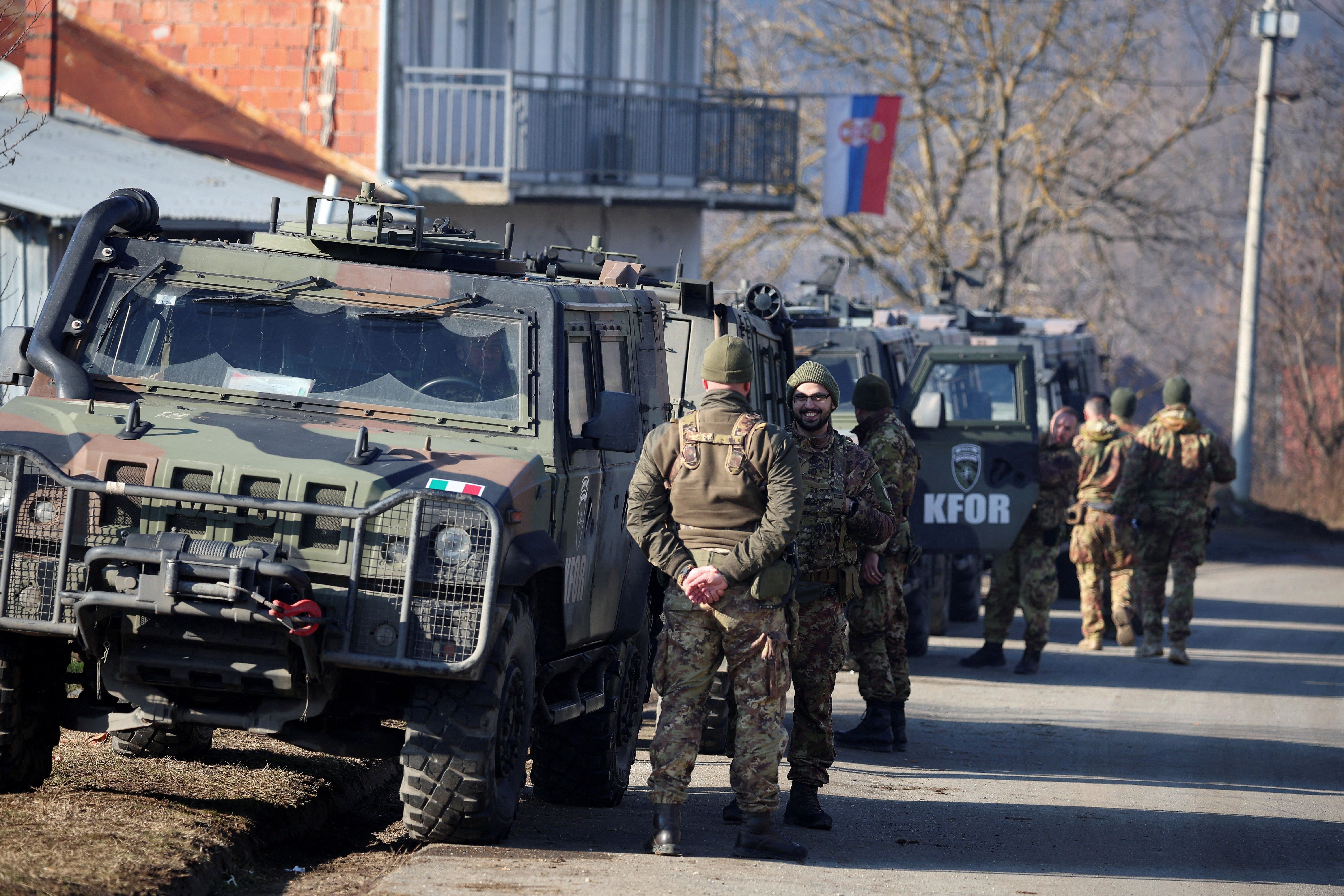Serbia puts forces on combat alert as tensions soar over roadblocks in Kosovo
Russia-backed Vucic accuses Pristina of ‘triggering unrest to kill Serbs’

Your support helps us to tell the story
From reproductive rights to climate change to Big Tech, The Independent is on the ground when the story is developing. Whether it's investigating the financials of Elon Musk's pro-Trump PAC or producing our latest documentary, 'The A Word', which shines a light on the American women fighting for reproductive rights, we know how important it is to parse out the facts from the messaging.
At such a critical moment in US history, we need reporters on the ground. Your donation allows us to keep sending journalists to speak to both sides of the story.
The Independent is trusted by Americans across the entire political spectrum. And unlike many other quality news outlets, we choose not to lock Americans out of our reporting and analysis with paywalls. We believe quality journalism should be available to everyone, paid for by those who can afford it.
Your support makes all the difference.Serbs have erected more roadblocks in northern Kosovo and defied international demands to remove others, a day after Belgrade placed its troops near the border on a high level of combat readiness.
Trucks have been used to block streets in Mitrovica, a town in northern Kosovo divided between Kosovo Serbs and ethnic Albanians, who represent the majority in Kosovo as a whole.
Serbian president Aleksandar Vucic said he had ordered the army to adopt its highest state of alert to “protect our people [in Kosovo] and preserve Serbia”.
He claimed that Pristina is preparing to “attack” Kosovo Serbs in the north of the country, and to remove by force several of the roadblocks that Serbs began putting up 18 days ago in protest at the arrest of a former Kosovo Serb police officer.
Mr Vucic addressed reporters together with Serbian Patriarch Porfirije, who is barred from entering Kosovo and from visiting a medieval Serbian church there ahead of the Serbian Orthodox Christmas on 7 January.
The Serbian president accused the West, along with Kosovo’s ethnic Albanian authorities, of plotting to “trigger unrest and kill the Serbs” who are manning the barricades.

“Their aim is to expel Serbia out of Kosovo ... with the help of their agents in Belgrade,” he said, apparently referring to the opposition and independent media, which are critical of his increasingly autocratic policies.
But he said he was negotiating with European Union and US mediators “on preserving peace and finding a compromise solution” for the current crisis.
Serbian prime minister Ana Brnabic refused to comment on claims that Serbia had sent a number of armed men into Kosovo.
“I will not discuss that with you,” she said when asked by a reporter if she knew whether Serbian armed forces were present in Kosovo.
Meanwhile, Petar Petkovic, a Serbian government official in charge of contact with Kosovo Serbs, told Serbian state broadcaster RTS that the troops had been ordered into combat readiness because Kosovo had done the same thing.
He claimed that heavily armed Kosovan units were intending to attack Kosovo Serbs, saying that they had “the intention of attacking our women, the elderly, children, men”. He added: “Our people who are at the barricades are just defending the right to live.”

Kosovan interior minister Xhelal Svecla said that Serbia, under the influence of Russia, was aiming to destabilise Kosovo by supporting the roadblocks.
“It is precisely Serbia, influenced by Russia, that has raised a state of military readiness and that is ordering the erection of new barricades,” he said in a statement.
Kosovo has asked Nato-led peacekeepers stationed there to remove the barricades, and hinted that Pristina’s forces will do it if Kfor (Nato’s Kosovo Force) does not act.
About 4,000 peacekeepers have been stationed in Kosovo since the 1999 war, which ended with Belgrade losing control over the territory. Around 50,000 Serbs live in the northern part of Kosovo and refuse to recognise the Pristina government or the state. They see Belgrade as their capital.

Any armed Serbian intervention in Kosovo would likely result in a clash with Nato forces and would mean a major escalation of tensions in the Balkans, which are still reeling from the bloody break-up of Yugoslavia in the 1990s.
Western attempts to reach a negotiated settlement have so far failed, with Serbia refusing to recognise Kosovo’s independence.
Kfor and the European Union have asked Pristina and Belgrade to show restraint and avoid provocations.
Kosovo remains a potential flashpoint in the Balkans, years after the 1998-99 war, which ended with a Nato intervention that pushed Belgrade’s troops out. It is not a member of the United Nations, and five EU states – Spain, Greece, Romania, Slovakia and Cyprus – refuse to recognise it.
Russia, Serbia’s historical ally, is blocking Kosovo’s membership of the UN.
Reuters and Associated Press contributed to this report


Join our commenting forum
Join thought-provoking conversations, follow other Independent readers and see their replies
Comments